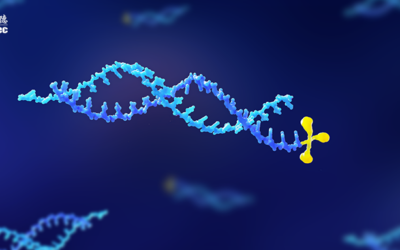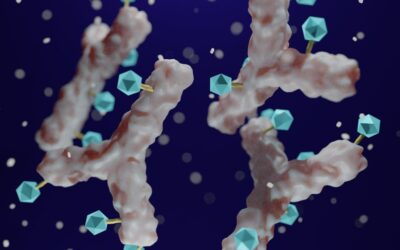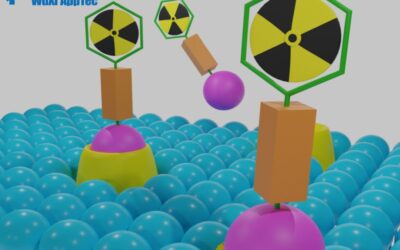Genotoxicity testing is an essential tool for drug developers, as it can ensure patient safety in new and established drugs. Genotoxic events can cause irreversible damage and particularly severe health events, which makes it imperative these tests are conducted accurately and efficiently.
Technical Expertise
How to Evaluate the Preclinical Safety of Oligonucleotide Drugs
Oligonucleotide drugs (ONs) are synthetic molecules ranging from 12 to 30 nucleotides in length and typically made up of single or double strands of nucleotides. Through Watson-Crick base pairing, these drugs use target messenger RNA (mRNA), which results in the inhibition of gene expression and the prevention of erroneous protein production.
Understanding the Sensitivity and Accuracy of FOB Tests for CNS and non-CNS Targeted Compounds
The Functional Observational Battery (FOB) test is an established systematic tool for evaluating the nervous systems of rats and determining neurotoxic effects. The FOB comprises more than 30 parameters, including behavioral aspects.
Ensuring Multi-Ion Channel Inhibition Assays are Accurate and Reliable
Ion channel inhibition is a crucial tool in the fight to prevent and treat many conditions, from irregular heart rhythms to epilepsy and cancers. It is also extremely important to developers looking to test the safety of drug candidates. However, the methods of testing ion channel inhibitors are complex, and sponsors must ensure they’re accurate and reliable.
Unlocking Drug Insights with Cutting-Edge Molecular Imaging Solutions
In the competitive world of drug development, precision and speed are paramount. As the pharmaceutical landscape evolves, so must the tools and technologies that support it. Though it originated in the 1990s, modern molecular imaging is among the leading developments in this evolution, offering innovative solutions that enhance preclinical research and accelerate the journey from discovery to clinical trials. By leveraging advanced imaging technologies, drug developers and sponsors can gain unparalleled insights into drug behavior, efficacy, and safety, ensuring that their programs remain on the path to success.
Small vs. Large Molecule Bioanalysis: 7 Key Differences
Small molecules are compounds with relatively low molecular weights (typically under 900 Daltons) that are designed to interact with specific targets in the body to achieve therapeutic effects. Typically synthesized chemically, small molecules form the foundation of many traditional pharmaceuticals widely used in treating various diseases. In fact, small molecule drugs represent about 90% of all approved medicines.
When to Start Subchronic & Chronic Toxicology Studies
Subchronic and chronic toxicology tests are essential studies that assess long term health effects of test substances, supporting longer clinical study durations and your New Drug Application (NDA) with the FDA. To make informed decisions and hit your timelines, when should these important studies be conducted?
Clinical Bioanalysis Strategy for Antibody Drug Conjugates (ADCs)
Cancer is a leading global health concern, accounting for approximately 10 million deaths in 2020, according to the World Health Organization’s International Agency for Research on Cancer. Traditional chemotherapy, which uses cytotoxic drugs like DNA base analogs (e.g., 5-fluorouracil), DNA-interacting agents (e.g., actinomycin D), antimetabolites (e.g., methotrexate), and tubulin inhibitors (e.g., paclitaxel), has been the primary treatment for decades. However, these treatments often have a narrow therapeutic window and can cause significant side effects due to non-specific targeting.
Biological Significance and Bioanalytical Strategies of Biomarkers – Complement Detection
In 1919, Jules Bordet received the Nobel Prize in Physiology or Medicine for discovering that heating serum to 56°C does not destroy its antibodies but does render them unable to kill bacteria. Bordet deduced the existence of a heat-sensitive, fragile component in serum that works with antibodies to eliminate bacteria, which he called “complement.” Today, we understand the complement as a multi-molecular system comprising more than 30 soluble proteins, membrane-binding proteins, and receptors, collectively known as the Complement System.
Why are GLP Toxicology Studies Important?
Good Laboratory Practice (GLP) regulations have played a critical role in raising the standards of drug development around the world for decades, establishing rules and criteria to ensure the quality and integrity of nonclinical safety data submitted to regulatory bodies.
Designing Juvenile Toxicology Studies: Key Considerations for Drug Development
Developing pediatric treatments is a complex and nuanced process that requires meticulous planning and execution. One critical aspect of this process is juvenile toxicology studies, which ensure the safety and efficacy of drugs intended for pediatric use. As drug manufacturers approach new treatments and therapies, the following are considerations for designing and conducting juvenile toxicology studies, emphasizing comprehensive assessment and reliable results.
How Radionuclide Drug Conjugates are Transforming Cancer Treatment
With cancer treatments drastically transforming in the last decade, radionuclide drug conjugates (RDCs) offer effective, precise treatment and diagnosis while minimizing side effects. RDCs worldwide have already received regulatory approval, and more will soon follow as researchers aim to continue improving efficacy, safety, and personalization. In this article, we dive into RDCs’ benefits and challenges.











